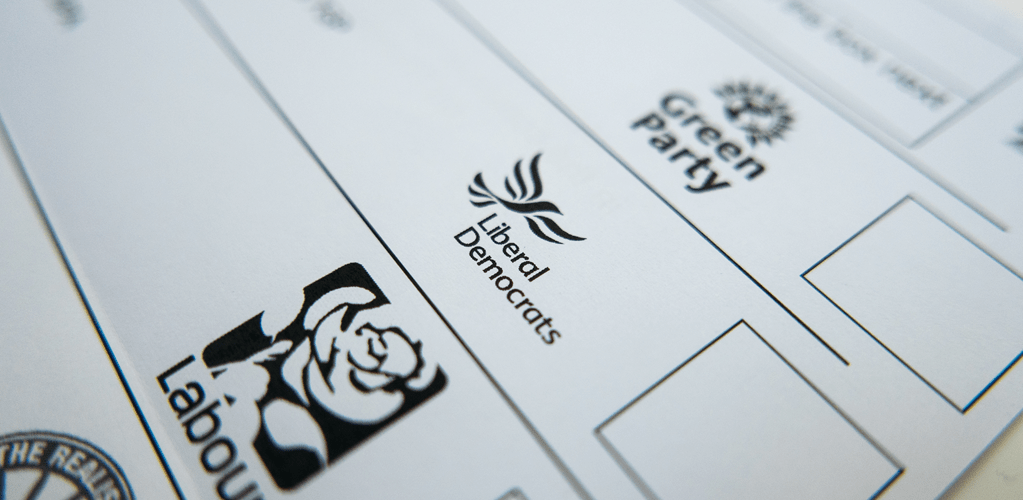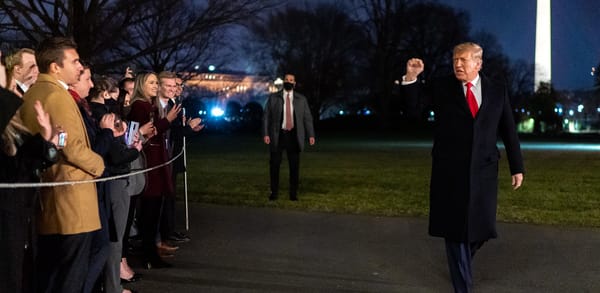‘It’s a basic civil right’: Millions in UK unable to vote due to immigration status
Despite living in the UK since infancy, Lucrezia Bosio, who holds settled status but not British citizenship, cannot vote in elections. High costs and complex immigration laws bar many migrants, like her, including elected members of government and NHS doctors, from voting on 4 July.

by EMILIANO MELLINO —
Award-winning Journalist and Organiser,
specialising in large-scale collaborative investigations.
L ucrezia Bosio has always thought of herself as British.
She has lived in the UK since she was two months old, grew up in south-west London and has the accent to prove it. She even did the Duke of Edinburgh’s award while she was at school.
But when she was preparing to vote in the Brexit referendum in 2016, Lucrezia was told she did not have the right to participate.
Lucrezia is one of the more than five million people who live in the UK but are unable to vote in the general election on 4 July because of their immigration status, according to research by the Migrant Democracy Project, which promotes the participation of migrants in politics.
Over the last three decades, immigration has become one of the defining issues in British politics. When Tony Blair came to power in 1997, only 3% of voters cited it as a key concern. Now that figure is around 40%.
Public attitudes towards immigration were a driving force behind the Brexit vote. They informed a large part of the current government’s policy agenda, which continued to harden the country’s immigration rules. And in the lead-up to next month’s election, much of the debate has once again centred around the subject of immigration.
But one set of voices often missing from these public discussions are those of migrants themselves.
Demoralised
Lucrezia, who holds an Italian passport and is in the UK on settled status, is the only person in her immediate family without British citizenship – something she says arose from a series of chance incidents.
Firstly, her mother ran into health complications while visiting family in Sicily, resulting in her giving birth in Italy.
Then, when Lucrezia eventually applied for a British passport in 2019, her application was rejected because she had recently lived abroad: she went to university in the Netherlands, where it was cheaper to study than in the UK.
Re-applying for citizenship now would cost her almost £1,700. That’s on top of the £6,000 she has spent on permanent residency and citizenship applications, appeals, document translations and lawyers. She says she feels demoralised.
Lucrezia participates in public life in the UK but has no say on the political system – and by extension her own rights. “It’s really horrible, it’s upsetting, it’s scary,” she told the Bureau of Investigative Journalism (TBIJ).
“There’s so much discourse on migration, and if you turn on the news or the TV… there’s never someone speaking to a migrant being like, ‘OK, what do you think?’”
Lara Parizotto, executive director of the Migrant Democracy Project, told TBIJ that some countries, such as New Zealand, have moved to systems whereby a person’s right to vote is decided by their residency status rather than their nationality.
In the UK, it’s less straightforward. Wales and Scotland allow migrants to vote in local elections (devolved parliaments and councils), whereas in England and Northern Ireland, commonwealth citizens and some people with European Union passports can vote in local elections.
But when it comes to general elections for the UK parliament, only UK and commonwealth citizens are entitled to vote.
“[People] who live, study, work, pay taxes and are part of our communities cannot vote in this election,” said Parizotto. “Whether we have lived here for a few months or three decades … we need residency-based voting rights for a healthier democracy.”
The issue is compounded in the UK, she said, where it is especially difficult for migrants to attain citizenship and full voting rights.
One reason for this is the cost. The UK has some of the most expensive visa and citizenship fees in the world. The Migration Observatory at the University of Oxford estimates a skilled worker with a partner and two children pays more than £40,000 in immigration charges over several years to become eligible for UK citizenship.

— The UK has some of the most expensive visa and citizenship fees in the world.
‘I’m an elected member of government but I can’t vote’
Among the many people to have been deterred by these high fees is Claudia Turbet-Delof, a London therapist who now finds herself in a bizarre situation within the democratic system.
Claudia came to the UK from Bolivia in 2003 as a tourist, and stayed on student and then spouse visas. But with the cost of British citizenship so high, she applied to become a French national (the country of her then husband) for less than £50, which allowed her to stay in the UK.
Her EU passport meant she could vote in local elections and even stand in a local authority – something she did successfully two years ago, when she became Labour councillor for the Victoria ward of the London Borough of Hackney.
“I’m actually an elected member of [local] government … but I can’t vote at a national level,” she said. “You see how crazy that is?”
Claudia, who came to the UK after a series of violent muggings in Bolivia left her fearing for her life, recently resigned from Labour over the party’s position on Gaza and its immigration policies.
“There is a domestic attack on migrants – I will never defend that, even if it means that I won’t be elected in two years’ time because it is unlikely independents get elected,” she says.
Only three of the main political parties – the Liberal Democrats, the Green Party and the Scottish National Party – have proposed a system that would allow migrants to vote in general elections. Meanwhile, both Labour and the Conservatives have pledged to cut immigration into the UK. Labour has also vowed to reduce the country’s reliance on overseas workers.

Denied a ‘basic civil right’
Eduardo Peres is originally from Brazil and now works as a sexual health and HIV doctor in the NHS. The 32-year-old, who is able to live and work in the UK because his husband is Spanish, says reducing the number of medical professionals from abroad would damage healthcare in the UK. Almost half of all registered doctors in Britain earned their medical qualifications outside the country.
He contributes to the UK but feels he is treated as a “third-class citizen” because he has no say in how things are run locally or nationally.
“There are lots of barriers for migrants to be able to work in the UK,” said Eduardo. “I had difficulty.”
He said that because migrants are not included in conversations around immigration and are not represented politically, the British public can be misled by “hate discourses”.
“There’s this picture, this labelling, [that migrants] are coming to steal the jobs and migrants are coming to occupy [the UK] and change the landscape,” he said. “[That’s part of] the culture wars of trying to divert the attention from the actual topics that should be discussed.”
“I pay my taxes, I provide a service for the community, I am working towards improving life in my community.”
Yet, Eduardo feels he is being denied a “basic civil right”.
“It’s something that has affected my idea of what it is to be living here,” he said.








[Read our Comments Guidelines]